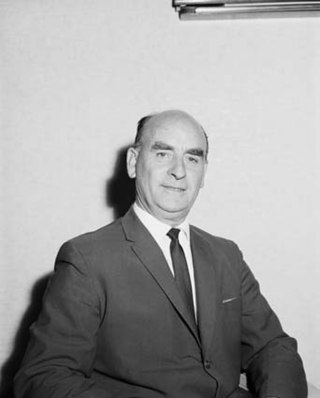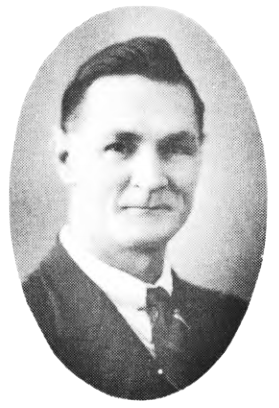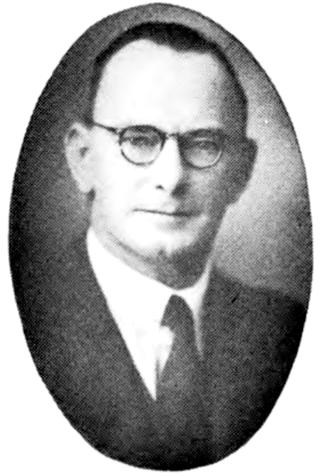Related Research Articles

John Brophy Renshaw was an Australian politician. He was Labor Premier of New South Wales from 30 April 1964 to 13 May 1965. He was the first New South Wales Premier born in the 20th century.
The Electoral district of Brown Hill-Ivanhoe was a Legislative Assembly electorate in the state of Western Australia. It covered part of the Goldfields city of Boulder, near Kalgoorlie, and neighbouring mining areas. It was created at the 1911 redistribution out of the former seats of Brown Hill and Ivanhoe, and was first contested at the 1911 election. It was abolished in the 1948 redistribution, with its area split between the neighbouring electorates of Boulder and Hannans, taking effect from the 1950 election. The seat was a very safe one for the Labor Party.

John Cain was an Australian politician, who became the 34th premier of Victoria, and was the first Labor Party leader to win a majority in the Victorian Legislative Assembly. He is the only premier of Victoria to date whose son has also served as premier.

John Trezise Tonkin AC, popularly known as "Honest John", was an Australian politician.

Albert Redvers George Hawke was the 18th Premier of Western Australia. He served from 23 February 1953 to 2 April 1959, and represented the Labor Party.

Frank Joseph Scott Wise AO was a Labor Party politician who was the 16th Premier of Western Australia. He took office on 31 July 1945 in the closing stages of the Second World War, following the resignation of his predecessor due to ill health. He lost the following election two years later to the Liberal Party after Labor had held office for fourteen years previously.

Edmund Harry Gray was an Australian trade unionist and politician who was a Labor Party member of the Legislative Council of Western Australia from 1923 to 1952, representing West Province. He served as a minister in the governments of John Willcock and Frank Wise.
The McLarty–Watts Ministry was the 21st Ministry of the Government of Western Australia, led by Liberal Premier Sir Ross McLarty and his deputy, Country Party leader Arthur Watts. It succeeded the Wise Ministry on 1 April 1947, following the defeat of the Labor government at the 1947 election two weeks earlier. It was significant in that it included in Florence Cardell-Oliver not only the oldest person, at age 70, to receive their first appointment to a ministerial post in Western Australia, but also the first female cabinet minister in Australia.
The Rason Ministry was the 8th Ministry of the Government of Western Australia and was led by Ministerialist Premier Hector Rason. It succeeded the Daglish Ministry on 25 August 1905 after the previous Labor minority administration fell on a vote of no confidence. On 7 May 1906, it was followed by the Moore Ministry led by Minister for Lands Newton Moore.
The Scaddan Ministry was the 11th Ministry of the Government of Western Australia and was led by Labor Premier John Scaddan. It succeeded the First Wilson Ministry led by Ministerialist Frank Wilson on 7 October 1911 after the decisive result of the state election held four days earlier, which had produced the State's first majority Labor government.
The Lefroy Ministry was the 13th Ministry of the Government of Western Australia and was led by Nationalist Premier Sir Henry Lefroy. It succeeded the Second Wilson Ministry on 28 June 1917 due to most members of the former Liberal Party, of which the previous Premier, Frank Wilson, had been the leader, pledging allegiance to the new party. The Lefroy Ministry, which was the first Coalition ministry in Western Australia, was also the only Ministry of a non-Labor government to be chosen by caucus.

Elections were held in the state of Western Australia on 8 April 1933 to elect all 50 members to the Legislative Assembly. The one-term Nationalist-Country coalition government, led by Premier Sir James Mitchell, was defeated by the Labor Party, led by Opposition Leader Philip Collier.

The Second Collier Ministry was the 18th Ministry of the Government of Western Australia and was led by Labor Premier Philip Collier. It succeeded the Second Mitchell Ministry on 24 April 1933, following the defeat of the Nationalist government at the 1933 election on 8 April.
The Willcock Ministry was the 19th Ministry of the Government of Western Australia, and was led by Labor Premier John Willcock. It succeeded the Second Collier Ministry on 27 August 1936, upon the resignation of Philip Collier as Premier on ill health grounds. It became the longest-serving Labor ministry in Western Australia.
The Carr ministry (2003–2005) or Fourth Carr ministry was the 88th ministry of the New South Wales Government, and was led by the 39th Premier of New South Wales, Bob Carr, representing the Labor Party.

Aubrey Augustus Michael Coverley was an Australian politician who was a Labor Party member of the Legislative Assembly of Western Australia from 1924 until his death, representing the seat of Kimberley. He served as a minister in the governments of John Willcock and Frank Wise.
William Mortimer Marshall was an Australian politician who was a Labor Party member of the Legislative Assembly of Western Australia from 1921 until his death, representing the seat of Murchison. He served as a minister in the government of Frank Wise.
Emil Nulsen was an Australian politician who was a Labor Party member of the Legislative Assembly of Western Australia from 1932 to 1962. He served as a minister in the governments of John Willcock, Frank Wise, and Albert Hawke.

William Henry Kitson was an Australian politician who was a Labor Party member of the Legislative Council of Western Australia from 1924 to 1947. He was a minister in the governments of Philip Collier, John Willcock, and Frank Wise, and later served as Agent-General for Western Australia from 1947 until his death.
Minister for Transport is a position in the government of Western Australia, currently held by Rita Saffioti of the Labor Party. The position was first created in 1945, in the ministry formed by Frank Wise, and has existed in almost every government since then. The minister is responsible for the Department for Transport.
References
- Hansard (1945), p. v-vi.
- Western Australian Government Gazette, 31 July 1945, page 1945:703.
- Black, David; Bolton, Geoffrey (2001). Biographical Register of Members of the Parliament of Western Australia, Volume Two, 1930-1990 (Revised ed.). Parliament House: Parliament of Western Australia. ISBN 0731697839.